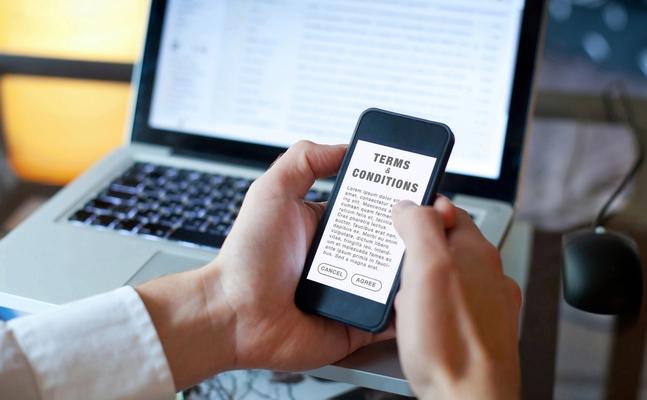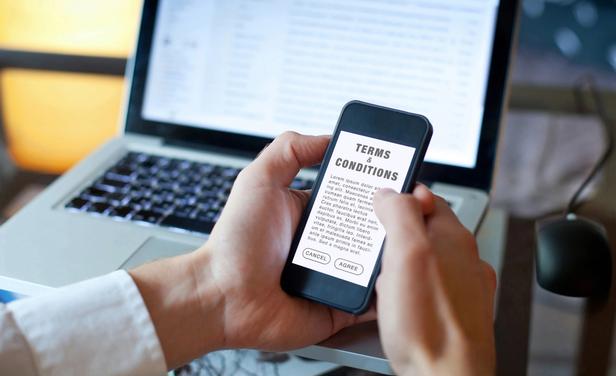Subscribe to our newsletter
The old adage goes, “different strokes for different folks.” It can be applied in varying contexts, but especially so when property management companies are considering and negotiating vendor contracts. In today’s digital age, it’s no longer effective to hand over a one-size-fits-all contract.
Property management companies frequently work with various vendors, from landscapers to maintenance contractors and home security companies. Each vendor relationship requires different levels of communication and a different vendor agreement.

What’s Changed?
As technology continues to evolve and insert itself more and more into our daily lives, it’s vital to revisit the terms of your agreements, considering new factors that may not have come into play before.
Roughly 20 years ago, blanket vendor agreements may have sufficed. And many non-technical vendors may be fine to continue signing those same agreements today. But, for technology companies, these agreements are simply not tenable. For example, landscapers and roofers might not be too concerned about data security and privacy, but technology partners are doing their due diligence.
That’s because laws, like the California Consumer Privacy Act (CCPA) or The General Data Protection Regulation (GDPR) for example, have been implemented to provide increased data protection and transparency into data usage. These protections are non-negotiable, as the need for secure encryption is paramount today. SmartRent is committed to staying up to speed and in compliance with local, regional, national and international laws to protect the security of our clients and their residents, even as those laws change and evolve.
Integrations with property management systems, CRMs and hardware partners have become an essential piece of providing a robust smart home platform and are often misunderstood. Yes, integrations often require access to resident data. However, most of these integrations only pull over a very limited amount of resident data and maintain a regular process to purge and permanently delete this data well within timeframes required by law. Moreover, technology vendors have an obligation to residents and property owners to protect their data and not sell it to third parties. Companies like SmartRent take these obligations very seriously.
Oftentimes standard vendor agreements, which have been utilized for decades and are frequently required by accounting and legal departments as part of a company’s vendor management system, don’t account for the nuances and burdens produced by the rapidly evolving world of technology. This can become a problem if these standard vendor agreements supersede an MSA that has been customized to protect both the technology provider and the client. In these instances, technology vendors are unable to sign a management company’s standard vendor agreement, even if it’s required by a vendor management system, because by superseding an MSA, the technology vendor can put itself and the client in unnecessary risk.
As technology has become a part of nearly everything we do, there are increased concerns from clients and residents surrounding data and cybersecurity threats. Addressing those concerns is a vital part of the contractual process.
Flexibility Built-In
With the rapid rate of technology development, everyone wants the newest devices and solutions. Your vendor agreements with technology partners need to reflect the flexibility and agility to add or change features as they evolve. This might mean changes in software fees, upgrades or new solution add-ons. In order to be at the cutting-edge of technology and provide the best resident experience, your technology partner agreement shouldn’t be too cut and dry, and if it is, maybe you should evaluate that agreement again. Consider the need for changes in order to progress with the speed of the ever-changing technology market.

Communications with Residents
Technology companies may need to engage and communicate with residents at times. While a landscaper or snow plow vendor would likely never communicate directly with a resident, a technology company is often more forward facing. For example, SmartRent field technicians will need to enter apartment units and homes in order to complete smart home retrofit installations.
Our 24/7 support staff communicates with residents via phone, chat and email to troubleshoot devices and resolve software complications that may occur. The vendor agreement should reflect the modes of communication so there’s not discrepancies between what the property management company and vendor agree to.
Overall, vendor agreements should reflect the needs of today’s residents and property managers, while also taking into account the functions of a technology company. While it might be more time consuming to draft various vendor agreements, it is necessary to keep up with the times. By opening the lines of communication between vendors and property management, and discussing the terms of the agreement, it allows both parties to find common ground and ultimately keeps everyone both protected and satisfied.
Learn more about SmartRent’s safe and convenient smart home automation solutions.

